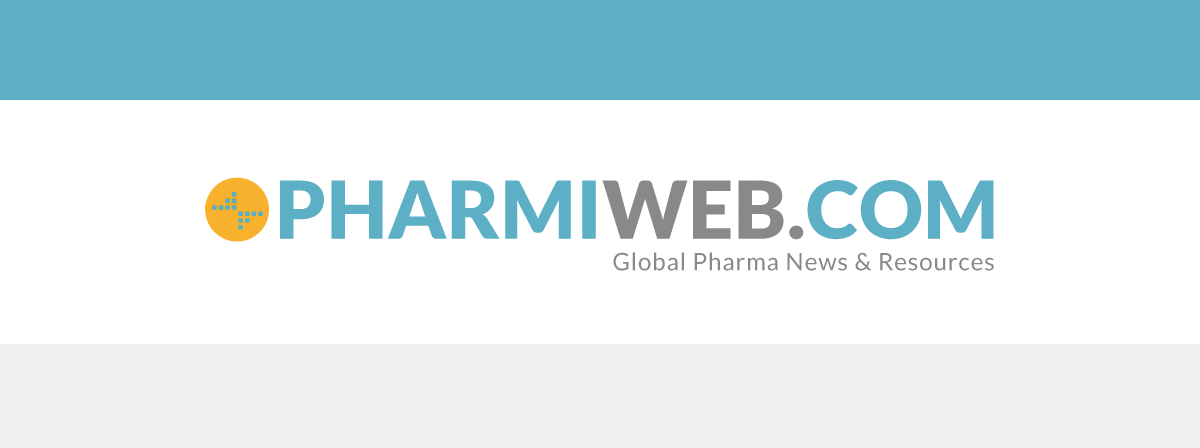Watch Out: Traumatic Brain Injury Treatment Market Is Thriving
Traumatic Brain Injury Treatment Market
Introduction:
The Traumatic Brain Injury (TBI) treatment market is a dynamic and crucial sector within the broader healthcare industry. It encompasses a wide range of interventions aimed at mitigating the effects of TBI, a significant cause of morbidity and mortality worldwide. Several key drivers fuel the growth of this market. Firstly, the increasing incidence of TBI due to factors such as road accidents, sports-related injuries, falls, and acts of violence is a major contributing factor. Secondly, growing awareness about TBI and its long-term consequences has led to earlier diagnosis and more proactive treatment approaches. Furthermore, technological advancements in neuroimaging, diagnostics, and therapeutic interventions have revolutionized the management of TBI, leading to improved patient outcomes and fueling market expansion. The development of novel drugs, advanced surgical techniques, and innovative rehabilitation strategies are continually shaping the landscape of TBI treatment. Moreover, government initiatives and funding programs aimed at supporting TBI research, prevention, and treatment have played a pivotal role in driving market growth. The TBI treatment market plays a vital role in addressing global health challenges by reducing disability, improving quality of life, and minimizing the socioeconomic burden associated with TBI. As the global population ages and urbanization increases, the incidence of TBI is expected to rise, further highlighting the importance of continued innovation and investment in this critical healthcare sector.
Get the full PDF sample copy of the report: (TOC, Tables and figures, and Graphs) https://www.consegicbusinessintelligence.com/request-sample/1418
Market Size:
Consegic Business Intelligence analyzes that the traumatic brain injury market size is growing with a CAGR of 6.7% during the forecast period (2024-2031). The market accounted for USD 3,461.33 million in 2023 and is projected to be valued at USD 5,437.23 Million by 2031.
Definition of Market:
The Traumatic Brain Injury (TBI) treatment market encompasses all products, services, and therapeutic interventions designed to manage and alleviate the symptoms and long-term effects of TBI. This includes a broad spectrum of medical and rehabilitative strategies tailored to address the diverse needs of TBI patients. Key components of the market include pharmaceuticals, surgical procedures, rehabilitative therapies, and assistive technologies.
Key terms related to the market include:
Traumatic Brain Injury (TBI): Damage to the brain caused by an external mechanical force, leading to temporary or permanent impairment of cognitive, physical, and emotional functions.
Medications: Pharmaceutical drugs used to manage TBI-related symptoms, such as seizures, pain, and depression. Examples include anti-seizure drugs, coma-inducing drugs, and antidepressants.
Surgeries: Surgical procedures performed to address complications arising from TBI, such as hematoma evacuation, skull fracture repair, and intracranial pressure monitoring.
Rehabilitation Therapies: Therapeutic interventions aimed at restoring physical, cognitive, and emotional functions impaired by TBI. These may include physical therapy, occupational therapy, speech therapy, and cognitive rehabilitation.
Neuroimaging: Diagnostic techniques, such as CT scans and MRI, used to assess the extent and location of brain damage following TBI.
Assistive Technologies: Devices and equipment that help individuals with TBI to perform daily tasks and improve their independence, such as mobility aids, communication devices, and cognitive prosthetics.
The TBI treatment market is a complex and evolving landscape, driven by advances in medical science, technology, and rehabilitation techniques. It plays a crucial role in improving the outcomes and quality of life for individuals affected by TBI.
Get Discount On Report @ https://www.consegicbusinessintelligence.com/request-discount/1418
Market Scope and Overview:
The scope of the Traumatic Brain Injury (TBI) treatment market is extensive, encompassing a diverse array of technologies, applications, and industries. This market includes the development, manufacturing, and distribution of pharmaceuticals, medical devices, and rehabilitation equipment used in the diagnosis, treatment, and management of TBI. Technologies such as neuroimaging (CT, MRI), neuromonitoring, and neurostimulation are integral to the market, providing valuable tools for assessing brain damage and guiding treatment strategies. Furthermore, the market includes various therapeutic interventions, such as surgery, medication, and rehabilitation therapies. The TBI treatment market serves a wide range of applications, including acute care, rehabilitation, and long-term management of TBI-related complications. The industries served by this market include hospitals, clinics, rehabilitation centers, and home healthcare providers. The growing prevalence of TBI, driven by factors such as road accidents, sports-related injuries, and falls, underscores the importance of this market in addressing a significant global health challenge.
The TBI treatment market plays a critical role in the larger context of global trends related to healthcare and technology. As the global population ages and urbanization increases, the incidence of TBI is expected to rise, further highlighting the importance of this market. The increasing focus on personalized medicine and precision healthcare is also driving innovation in TBI treatment, with the development of targeted therapies and individualized rehabilitation plans. Moreover, the integration of digital technologies, such as telehealth and mobile health, is transforming the delivery of TBI care, making it more accessible and convenient for patients. The growing emphasis on improving patient outcomes and reducing the long-term costs associated with TBI is also driving demand for more effective and cost-efficient treatment strategies. The TBI treatment market is poised for continued growth and innovation as it addresses the evolving needs of patients and healthcare providers.
Market Segmentation:
The Traumatic Brain Injury (TBI) treatment market can be segmented based on several factors:
By Treatment: This segment includes Medications (Anti-seizure Drugs, Coma-inducing Drugs, and Others), Surgeries, Rehabilitation Therapies, and Others. Medications are used to manage symptoms and prevent complications. Surgeries address structural damage and pressure issues. Rehabilitation Therapies aim to restore function and improve quality of life.
By End-user: This segment consists of Hospitals, Clinics, Rehabilitation Centers, and Others. Hospitals provide acute care and initial management, while clinics offer specialized treatments and follow-up care. Rehabilitation Centers focus on restoring function and independence.
By Route of Administration: This segment includes Oral, Parenteral, and Others. Oral administration is convenient for maintenance medications. Parenteral administration is used for acute treatments and when oral intake is compromised.
Each segment contributes significantly to the overall market growth by addressing different aspects of TBI management and catering to specific patient needs. The diverse range of treatments and settings ensures comprehensive care for individuals with TBI.
Market Drivers:
Increasing Incidence of TBI: The rising number of TBI cases due to accidents, falls, and sports injuries drives demand for treatment options.
Technological Advancements: Innovations in neuroimaging, diagnostics, and therapeutic interventions enhance the effectiveness of TBI treatment.
Growing Awareness: Increased awareness about TBI and its long-term consequences leads to earlier diagnosis and treatment, boosting market growth.
Government Initiatives and Funding: Government support for TBI research, prevention, and treatment stimulates market development.
Aging Population: The growing elderly population is more susceptible to falls, a major cause of TBI, increasing the need for treatment.
Market Key Trends:
Personalized Medicine: Tailoring treatment plans to individual patient characteristics and needs is becoming increasingly prevalent.
Neurostimulation Techniques: The use of non-invasive brain stimulation techniques, such as TMS and tDCS, is gaining traction for TBI rehabilitation.
Digital Health Integration: Telehealth and mobile health technologies are being used to improve access to TBI care and monitor patient progress remotely.
Biomarker Development: Research into biomarkers that can predict TBI severity and outcomes is advancing, enabling more targeted treatment strategies.
Regenerative Medicine: The development of cell-based therapies and other regenerative approaches holds promise for repairing damaged brain tissue after TBI.
Market Opportunities:
Emerging Markets: Untapped markets in developing countries offer significant growth potential for TBI treatment.
Innovative Therapies: The development of novel drugs and therapies that address unmet needs in TBI management presents lucrative opportunities.
Rehabilitation Technologies: The increasing demand for advanced rehabilitation technologies, such as virtual reality and robotics, creates market opportunities.
Telehealth Solutions: The expansion of telehealth services for TBI patients can improve access to care and reduce healthcare costs.
Prevention Programs: Investment in TBI prevention programs can reduce the incidence of TBI and the need for treatment.
Market Restraints:
High Treatment Costs: The high cost of TBI treatment, including surgery, medication, and rehabilitation, can limit access to care.
Limited Reimbursement: Inadequate reimbursement policies for TBI treatment can hinder market growth.
Lack of Awareness: Insufficient awareness about TBI and its treatment options can delay diagnosis and care.
Regulatory Hurdles: Stringent regulatory requirements for new TBI therapies can slow down market entry.
Geographic Limitations: Uneven distribution of TBI treatment facilities and specialists can limit access to care in certain regions.
Market Challenges:
The Traumatic Brain Injury (TBI) treatment market, while exhibiting strong growth potential, faces a multitude of challenges that can hinder its progress. One of the most significant challenges is the heterogeneity of TBI itself. TBI can result from a wide range of mechanisms, including blunt force trauma, penetrating injuries, and blast exposure, leading to varying degrees of brain damage and a diverse array of symptoms. This heterogeneity makes it difficult to develop standardized treatment protocols and therapies that are effective for all TBI patients.
Another major challenge is the complexity of the brain and the limited understanding of the underlying pathophysiology of TBI. While significant progress has been made in understanding the acute phase of TBI, the chronic effects of TBI, such as neuroinflammation, neurodegeneration, and cognitive impairment, remain poorly understood. This lack of knowledge hinders the development of targeted therapies that can address the long-term consequences of TBI.
Clinical trial design is another significant hurdle in the TBI treatment market. TBI clinical trials are often complex and expensive, requiring large sample sizes and long follow-up periods. Moreover, the heterogeneity of TBI patients and the lack of reliable biomarkers make it difficult to identify patients who are most likely to respond to a particular treatment. This can lead to inconclusive trial results and delays in the approval of new therapies.
The regulatory landscape for TBI therapies is also challenging. Regulatory agencies often require extensive clinical trial data to demonstrate the safety and efficacy of new TBI treatments. This can be particularly difficult for therapies that target the chronic effects of TBI, as it may take many years to observe a significant clinical benefit. The high cost and uncertainty associated with regulatory approval can discourage investment in TBI research and development.
Finally, access to care is a significant challenge for many TBI patients. TBI treatment often requires a multidisciplinary approach involving neurologists, neurosurgeons, rehabilitation specialists, and other healthcare professionals. However, access to these specialists may be limited, particularly in rural areas and underserved communities. Moreover, the high cost of TBI treatment can be a barrier for many patients, especially those who lack adequate health insurance. Addressing these challenges requires a concerted effort from researchers, clinicians, policymakers, and industry stakeholders to improve our understanding of TBI, develop more effective therapies, and ensure that all TBI patients have access to the care they need.
Market Regional Analysis:
The Traumatic Brain Injury (TBI) treatment market exhibits varying dynamics across different regions, influenced by factors such as healthcare infrastructure, regulatory policies, and the prevalence of TBI-related incidents. In North America, the market is driven by advanced healthcare facilities, high awareness levels, and substantial research funding. The presence of major pharmaceutical and medical device companies further contributes to market growth. Europe also boasts a well-established TBI treatment market, characterized by stringent regulatory standards and a focus on innovative therapies. Government initiatives and collaborative research efforts support market expansion.
Asia-Pacific represents a rapidly growing TBI treatment market, driven by increasing healthcare expenditure, rising awareness, and a growing incidence of TBI due to road accidents and sports-related injuries. The presence of a large patient pool and improving healthcare infrastructure are also contributing factors. Latin America and the Middle East & Africa are emerging markets with significant growth potential. Improving healthcare access, rising awareness, and increasing investments in healthcare infrastructure are driving market growth in these regions.
Each region presents unique challenges and opportunities for TBI treatment providers. Understanding these regional nuances is crucial for developing effective market entry strategies and tailoring treatment approaches to meet the specific needs of patients in different parts of the world.
Frequently Asked Questions:
Q: What is the projected growth rate of the Traumatic Brain Injury (TBI) treatment market?
A: The TBI treatment market is projected to grow at a CAGR of 6.7% during the forecast period (2024-2031).
Q: What are the key trends in the TBI treatment market?
A: Key trends include personalized medicine, neurostimulation techniques, digital health integration, biomarker development, and regenerative medicine.
Q: What are the most popular TBI treatment types?
A: Common TBI treatment types include medications (anti-seizure drugs, coma-inducing drugs), surgeries, and rehabilitation therapies.
https://www.linkedin.com/company/tech-evolution-insights/
https://www.linkedin.com/company/growthh360/
https://www.linkedin.com/company/future-view-market/
https://www.linkedin.com/company/stuttgart-business-review/
https://www.linkedin.com/company/san-francisco-s-disruptors/
https://www.linkedin.com/company/knowledge-evolution24/
https://www.linkedin.com/company/tech-innovations-lab/
https://www.linkedin.com/company/tech-trailblazers24/
https://www.linkedin.com/company/quantum-bytes-24/
https://www.linkedin.com/company/future-of-ai-360/"
Contact Us:
Consegic Business intelligence Pvt Ltd
Baner Road, Baner, Pune, Maharashtra - 411045
(US) (505) 715-4344
[email protected]
[email protected]
Web - https://www.consegicbusinessintelligence.com/
About Us:
Consegic Business Intelligence is a data measurement and analytics service provider that gives the most exhaustive and reliable analysis available of global consumers and markets. Our research and competitive landscape allow organizations to record competing evolutions and apply strategies accordingly to set up a rewarding benchmark in the market. We are an intellectual team of experts working together with the winning inspirations to create and validate actionable insights that ensure business growth and profitable outcomes.
We provide an exact data interpretation and sources to help clients around the world understand current market scenarios and how to best act on these learnings. Our team provides on-the-ground data analysis, Portfolio Expansion, Quantitative and qualitative analysis, Telephone Surveys, Online Surveys, and Ethnographic studies. Moreover, our research reports provide market entry plans, market feasibility and opportunities, economic models, analysis, and an advanced plan of action with consulting solutions. Our consumerization gives all-inclusive end-to-end customer insights for agile, smarter, and better decisions to help business expansion.
Connect with us on:
LinkedIn - https://www.linkedin.com/company/consegic-business-intelligence/
YouTube - https://www.youtube.com/@ConsegicBusinessIntelligence22
Facebook - https://www.facebook.com/profile.php?id=61575657487319
X - https://x.com/Consegic_BI
Instagram - https://www.instagram.com/cbi._insights/
This release was published on openPR.









